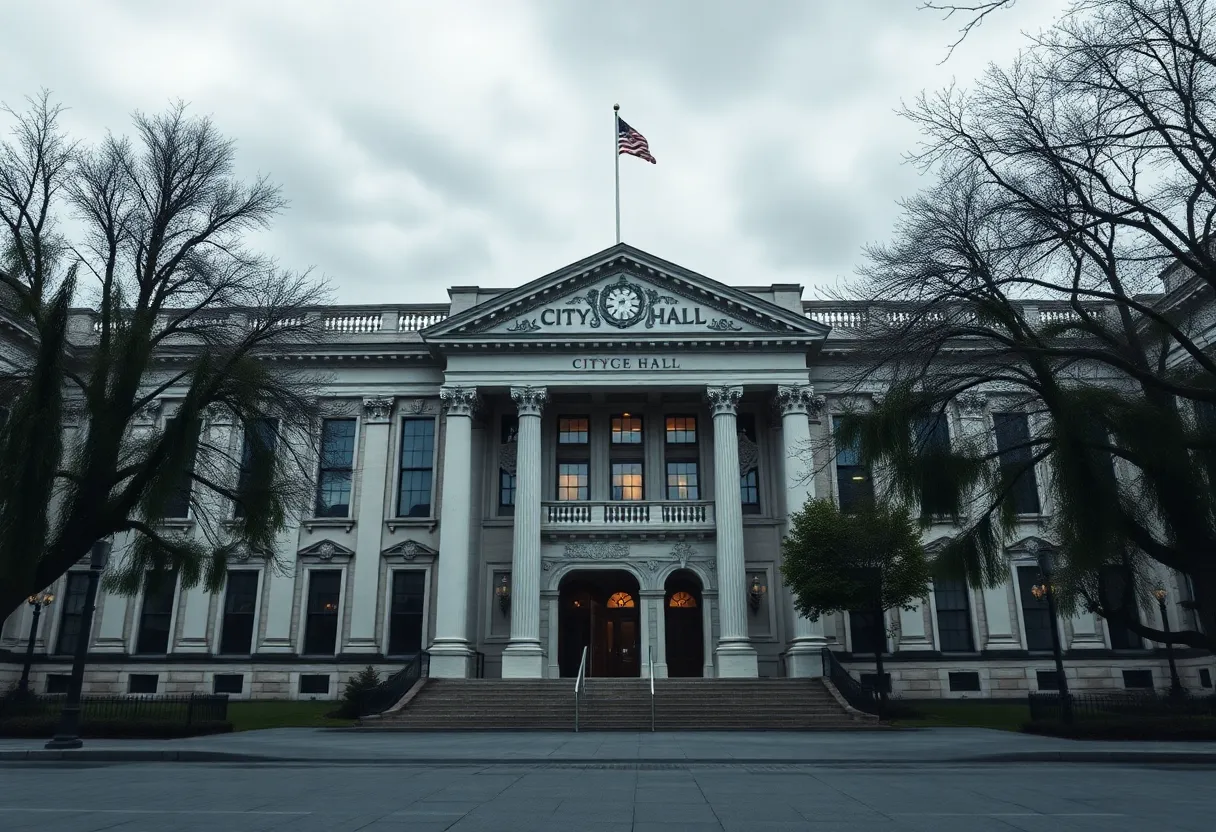California, October 16, 2025
News Summary
California Governor Gavin Newsom has vetoed Assembly Bill 1332, which aimed to allow direct shipping of medical cannabis products to patients by microbusinesses. Despite unanimous legislative support, Newsom raised concerns over the complexity of implementation. The veto comes amid a projected decline in medical cannabis sales in California, highlighting ongoing accessibility challenges for patients reliant on specialized cannabis products. Advocates argue the bill could have significantly benefitted individuals with serious medical conditions.
California Governor Gavin Newsom vetoed Assembly Bill 1332 on October 11, 2023, halting an initiative designed to expand patient access to medical cannabis. The bill sought to allow licensed microbusinesses to ship medical cannabis products directly to patients through common carriers like UPS or FedEx, a move that advocates argued would improve availability for individuals requiring specialized medical products.
Sponsored by Assemblymember Patrick Ahrens (D-Silicon Valley), A.B. 1332 received overwhelming support in both legislative chambers, achieving a unanimous vote of 39-0 in the California Senate and 78-0 in the House. However, Governor Newsom expressed concerns that the proposed direct shipping program would be burdensome and overly complex to administer.
The veto is particularly significant given that medical cannabis sales in California are projected to experience a substantial decline, with forecasts suggesting figures dipping below $200 million by 2025 compared to approximately $540 million in 2021. Currently, medical cannabis accounts for roughly 4% of California’s licensed marketplace, a significant decrease from previous years.
Under the proposed legislation, the Department of Cannabis Control (DCC) would have to revamp the state’s cannabis track-and-trace system, a process expected to incur substantial costs and time commitments. Fiscal analysis revealed that a one-time implementation cost of about $269,000 would be needed initially, with ongoing annual costs estimated at approximately $472,000 to ensure compliance with the new direct shipping system.
Despite these costs being less than 0.05% of the state’s taxable cannabis revenue from the prior year, the bill would have limited the ability to ship medical cannabis directly to patients to just two businesses. According to DCC data, California boasts 290 active microbusiness licenses, over 50 of which have licenses for various operations, including retail, manufacturing, and cultivation.
Governor Newsom’s veto underscores ongoing challenges that medical cannabis patients face in gaining access to specialized products, with many struggling to find what they need in local dispensaries. Advocates highlight how high taxes and limited access have pushed patients into the unregulated market, marking a shift away from the protections offered by legal cannabis operations.
California pioneered legal medical cannabis with the passage of Proposition 215 in 1996. Despite this historical leadership, over 57% of cities and counties statewide continue to prohibit cannabis dispensaries. Furthermore, medical cannabis patients must obtain a Medical Marijuana Identification Card (MMIC) from local health departments to avoid state sales-and-use taxes, which can be as high as $200.
Proponents of A.B. 1332 maintained that patients with severe medical conditions, including intractable epilepsy and advanced cancers, would greatly benefit from increased access to medical cannabis products. A three-year sunset provision was included in the bill, allowing lawmakers to reassess its effectiveness in addressing patient access issues.
While the governor has vetoed this particular bill, he remains open to collaborating with legislators on alternative strategies in the future aimed at enhancing more equitable access to medical cannabis in California.
FAQ
What was Assembly Bill 1332 designed to do?
The bill aimed to expand patient access to medical cannabis by allowing licensed microbusinesses to ship products directly to patients using common carriers like UPS or FedEx.
Who sponsored Assembly Bill 1332?
The legislation was sponsored by Assemblymember Patrick Ahrens (D-Silicon Valley).
What was the outcome of the vote in the California Senate and House?
A.B. 1332 passed unanimously in both the California Senate (39-0) and House (78-0) before reaching the governor’s desk.
What were the concerns Governor Newsom expressed about the bill?
The governor expressed that the proposed direct-shipping program would be burdensome and overly complex to administer.
What is the current trend in medical cannabis sales in California?
Medical cannabis sales in California are projected to dip below $200 million in 2025, down from approximately $540 million in 2021.
What costs were associated with implementing A.B. 1332?
The fiscal analysis indicated a one-time implementation cost of about $269,000 and ongoing annual costs of approximately $472,000 to oversee compliance with the direct shipping system.
How many microbusiness licenses are active in California?
According to DCC data, there are 290 active microbusiness licenses in California, with more than 50 holding licenses for retail, manufacturing, distribution, and cultivation.
What challenges do medical cannabis patients face in California?
Medical cannabis patients often struggle to find specialized products that are not stocked in local dispensaries, and high taxes and limited access have forced them into the unregulated market.
What historic significance does California have regarding medical cannabis?
California was the first state to legalize medical cannabis via Proposition 215 in 1996.
What is the status of cannabis dispensaries in California?
Over 57% of California cities and counties still prohibit cannabis dispensaries.
Key Features of Assembly Bill 1332
| Feature | Details |
|---|---|
| Purpose | Expand patient access to medical cannabis through direct shipping. |
| Sponsor | Assemblymember Patrick Ahrens (D-Silicon Valley) |
| Vote Outcome | Passed 39-0 in Senate, 78-0 in House |
| Veto Date | October 11, 2023 |
| Projected Sales Drop | Dip below $200 million by 2025 |
| Active Microbusiness Licenses | 290 in California |
| Implementation Costs | Initial cost: $269,000; Annual cost: $472,000 |
Deeper Dive: News & Info About This Topic
- Business of Cannabis
- Cannabis Business Times
- Ganjapreneur
- Encyclopedia Britannica: Medical Marijuana Debate
- US News: Marijuana Legalization Guide

Author: Anaheim Staff Writer
The Anaheim Staff Writer represents the experienced team at HEREAnaheim.com, your go-to source for actionable local news and information in Anaheim, Orange County, and beyond. Specializing in "news you can use," we cover essential topics like product reviews for personal and business needs, local business directories, politics, real estate trends, neighborhood insights, and state news affecting the area—with deep expertise drawn from years of dedicated reporting and strong community input, including local press releases and business updates. We deliver top reporting on high-value events such as major conventions at the Anaheim Convention Center, including NAMM and VidCon, exciting games at Angel Stadium and Honda Center, and developments at Disneyland Resort Our coverage extends to key organizations like the Anaheim Chamber of Commerce and Visit Anaheim, plus leading businesses in hospitality, entertainment, and innovation that power the local economy As part of the broader HERE network, including HERECostaMesa.com, HEREHuntingtonBeach.com, HERESantaAna.com, and HERELosAngeles.com, we provide comprehensive, credible insights into Southern California's dynamic landscape.




